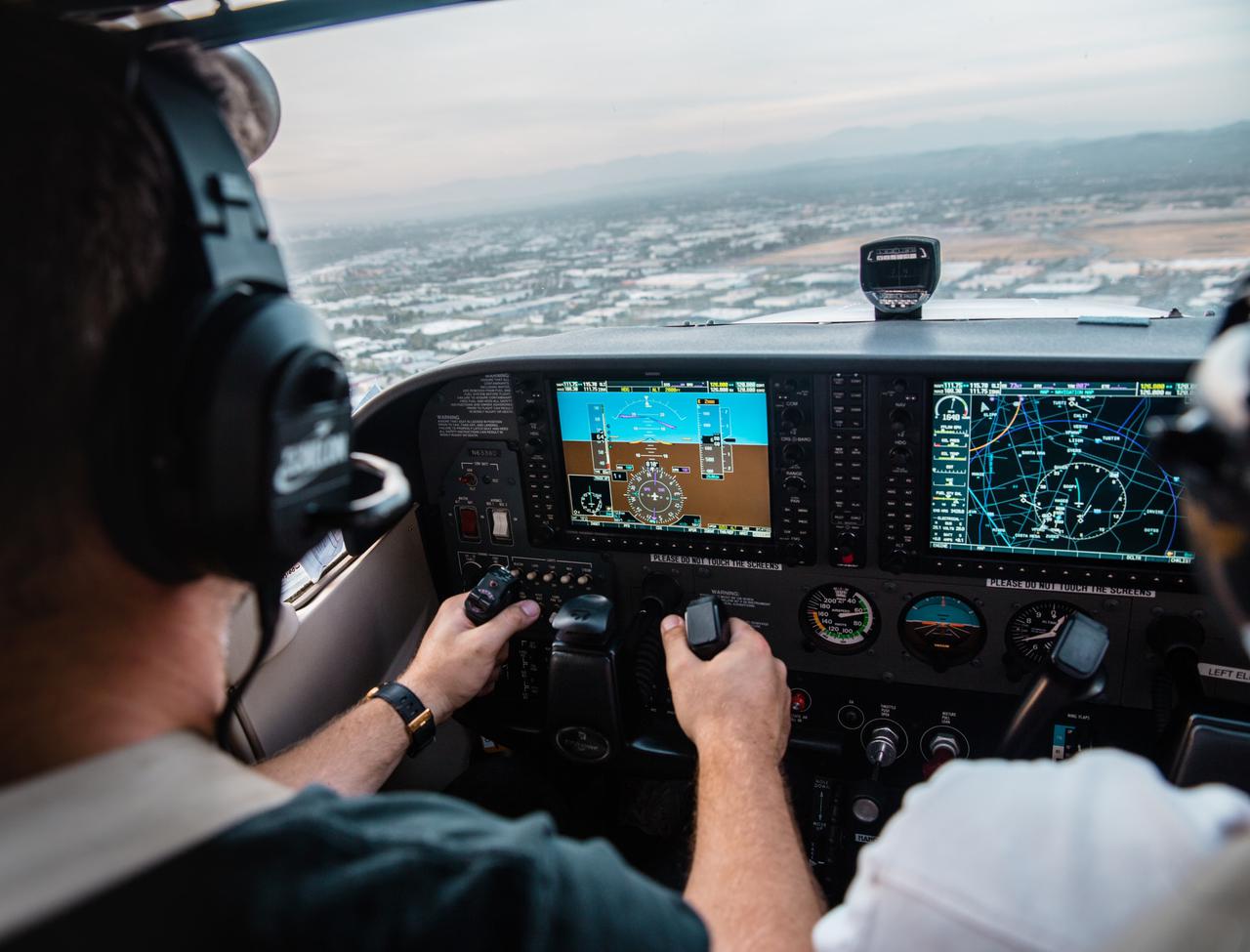Welcome! Our next session begins February 3, 2026! Enroll Now!
Apply Now
People from all over the world dream of being able to fly as a pilot for a living. It’s a good thing, too, given that there’s currently a shortage of professional pilots.
Becoming a commercial pilot involves more than just learning the nuts and bolts of actually flying an airliner, though. Communication between pilots and air traffic controllers is essential for safe flying. To ensure that a baseline level of communication standards are maintained, you’ll need to learn Aviation English before you start flying professionally.
That’s what makes an Aviation English program such a useful resource. It’s a fast-track method to your future as a commercial pilot, offering pilot training, flight time, and the opportunity to learn English all at once. With this kind of program, you could be flying in as little time as one year.
In this blog post, we’ll explore how Aviation English factors into safety standards for flying, how the program itself works, and how it supplements flight training to get you in the sky faster with a solid grasp of aviation communication standards.
According to the International Civil Aviation Organization, poor communications are a major contributing factor in many aviation accidents. There are a few ways in which this works.
Commercial flight is, of course, a global business employing people of varying fluency in English, but it isn’t just familiarity with the language that leads to errors in communication. A mutual understanding of key phrases, concepts, and interpretations of language is crucial to effective, safe aviation communications.
Aviation English was established by the ICAO as a standard mode of communications between pilots and air traffic controllers. It includes ideas, terms, phrases specific to aviation as well as plain English.
Aviation English programs allow international students to learn the standard of English necessary for safe commercial flight. These types of programs are typically designed with non-native English speakers in mind.
At the beginning of the program, you’ll be tested to determine your level of English proficiency. This will be used to gauge how much additional English education you’ll need over the course of the program.
Even if you have a strong level of proficiency with English, it’s worth restating that concepts and vocabulary specific to flight training may still make this kind of program worth your while. Differences in communication norms and common language interpretations may still be enough to pose a risk of unsafe miscommunication.
Some Aviation English programs allow you to receive flight training at the same time as learning communication standards. That means getting an opportunity to fly small aircraft as either the pilot-in-command or co-pilot and immediately putting time toward the 1500 hours of flight time required by the FAA to become a commercial pilot.
You’ll be taught by a certified instructor and take a written, oral, and flight test for your instrument rating and commercial pilot license. Coupled with Aviation English instruction, you may be flying commercial airliners, cargo flights, and more in just one year. It’s an efficient path to a rewarding career with plenty of available employment opportunities.

If you’re looking for an Aviation English program coupled with the kind of practical flight training mentioned in this blog post, you can get it through the American English Institute’s Commercial Pilot Pathway program.
No matter your level of English language proficiency, we’re here to offer you a fast, comprehensive start to your aviation career. Aspiring pilots can apply to the program now or contact us with any questions.
Stay updated on our news and events! Sign up to receive our newsletter and tips and tricks for improving your English.